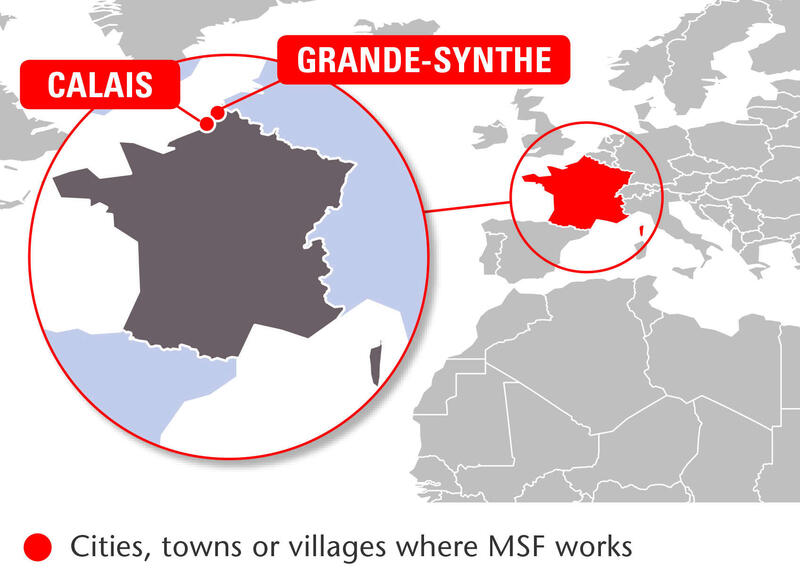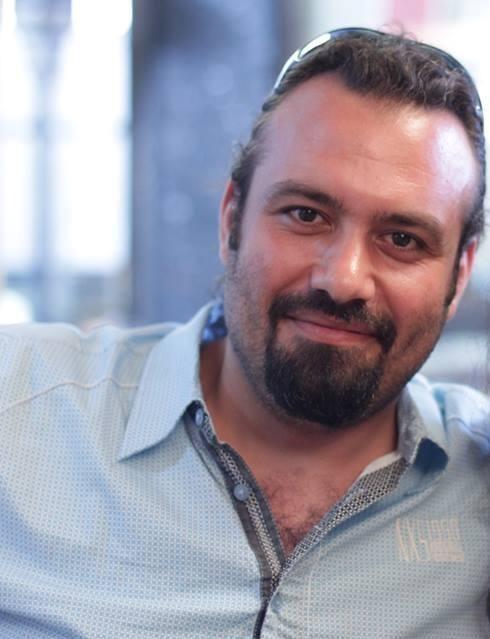With more than one million people arriving in Europe in search of safety in 2015, the current refugee crisis is unprecedented.

This year, tens of thousands of people have already made the dangerous journey to cross the Mediterranean and Aegean Seas.
The crisis shows no signs of abating. For some refugees, the UK is their desired destination, often because they have relatives they wish to join. With the English Channel as their final hurdle, thousands are now stuck in squalid camps in northern France.
Since September 2015, Médecins Sans Frontières/Doctors Without Borders (MSF) has been working in an informal camp in Calais known as ‘the Jungle’ and a formal camp in Grand-Synthe, near Dunkirk, to provide basic healthcare, physiotherapy and mental health services.
Staff story
Mohammad Ghannamm, MSF communications officer

"Scores of police vehicles surround the Jungle. Police stand guard, blocking the southern entrance to the camp, and no one is allowed through here any more. From the outside, it might appear as though the riot police have cordoned off a huge crime scene, with officers dressed in black from head to toe, waiting to catch a band of criminals.
"But inside is a completely different story. Inside are people who are victims of war and poverty, who decided many months ago to take destiny into their own hands and to travel thousands of kilometres in hope of a new life. They have been living for weeks to months in the Jungle camp, near France’s northern port city of Calais, desperately waiting for a chance to be smuggled into Britain."
read more from mohammad on our 'moving stories' blog
MSF's work in France: 2015
In September 2015, MSF started providing medical care to refugees and migrants living in the ‘Jungle’ camp in Calais.
In early 2016, the ‘Jungle’ camp was home to up to 6,000 refugees and migrants. The living conditions were dire, despite the efforts of non-profit organisations and local charitable initiatives.
The Jungle, Calais
With Médecins du Monde, MSF started providing medical services in the camp in September.
The team then built an outpatient department to improve working conditions and patient care, as the site is prone to flooding. Between 100 and 120 people were seen every day and benefited from medical consultations, nursing care and physiotherapy.
The team also undertook water and sanitation activities, built 66 chemical toilets and set up a system for collecting and managing rubbish. As people were living in small tents unsuitable for rainy and wintry weather, MSF built 80 wooden shelters, each accommodating four to five people.
Grande-Synthe, Dunkirk
Around 2,500 mainly Kurdish refugees and migrants were living at a site in Grande-Synthe, north of Calais, near the port of Dunkirk, in appalling conditions.
MSF set up 22 latrines and two water points, and provided medical consultations three days a week. MSF also decided, with the support of the local council, to build a new site offering better shelter and living conditions.
In November and December, over 2,100 medical consultations were carried out in this area – the majority for respiratory tract infections and scabies, predominantly caused by poor hygiene and sanitation.
Find out more in our 2015 International Activity Report


